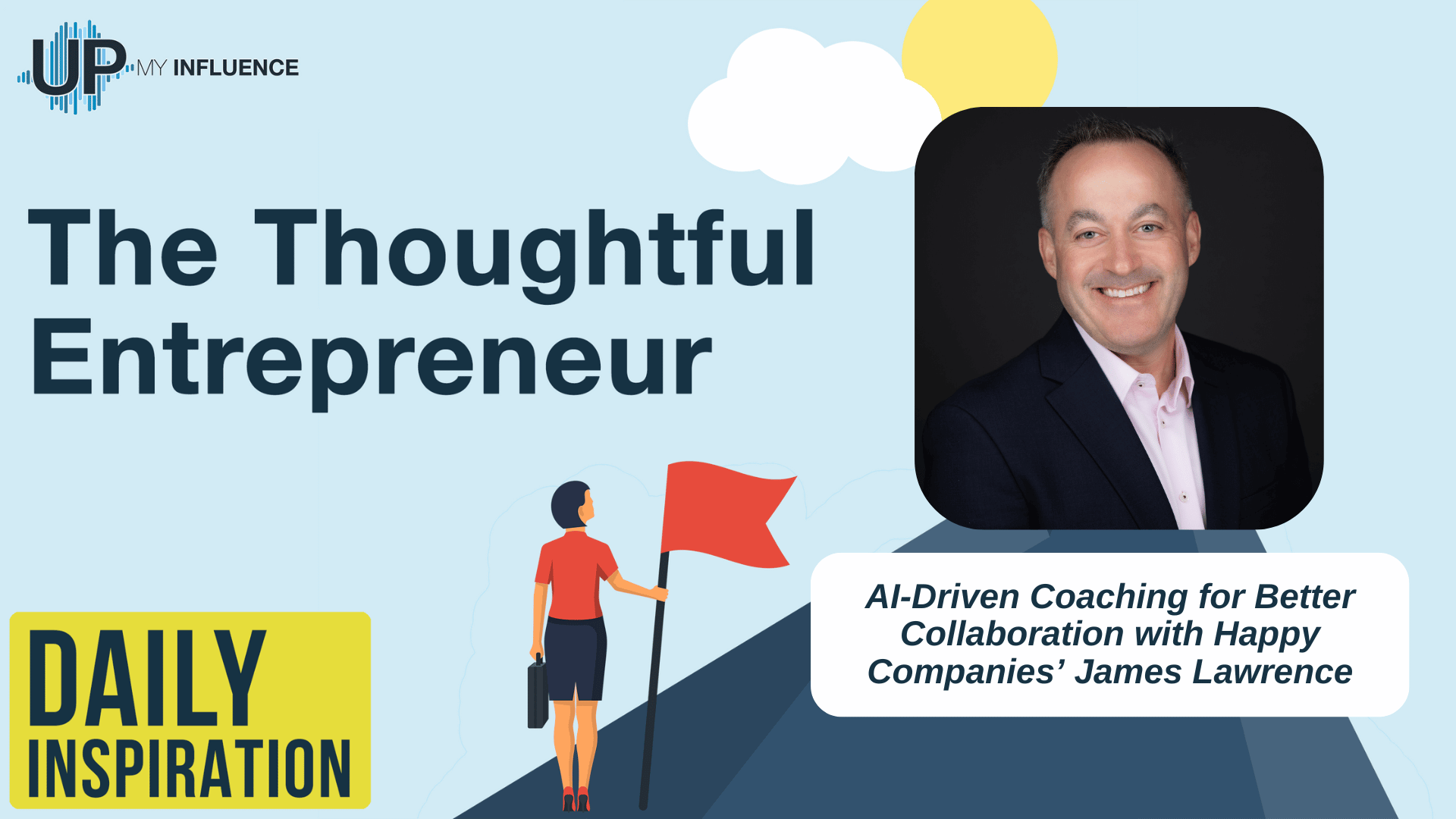THE THOUGHTFUL ENTREPRENEUR PODCAST
 Building Bridges in a Remote World: Enhancing Communication with AI Coaching
Building Bridges in a Remote World: Enhancing Communication with AI Coaching
In a recent episode of “The Thoughtful Entrepreneur,” host Josh engages in a compelling conversation with James Lawrence, the CEO and co-founder of Happy. This platform is dedicated to improving organizational culture and communication within companies, particularly in the evolving landscape of hybrid and remote work environments. The discussion centers around the challenges of managing people effectively, a shift accelerated by the COVID-19 pandemic, and how AI can play a pivotal role in addressing these challenges.
James begins by sharing his extensive experience as a CEO over the past 30 years, noting that most organizational challenges stem from people-related issues. He explains that his recent focus has been on developing technology that helps companies accelerate their people management processes at scale. Reflecting on his early leadership experiences, James acknowledges the difficulties he faced in effectively leading teams and recognizes that larger organizations often struggle even more with training and managing personnel.
Josh and James discuss the critical need for a positive workplace culture, whether in-person or virtual. They agree that fostering a sense of value among team members is essential for organizational success. James elaborates on how the Happy platform addresses these needs by providing AI-enhanced coaching tailored to individual employees. This coaching is integrated into the tools that employees use daily, such as Slack and Microsoft Teams, making it easily accessible and relevant.
About James Lawrence:
With more than 25 years of being a CEO and founder, James Lawrence loves to share his insights on leadership, organizational culture and the intersection of technology in the workplace. James believes the cornerstone of every successful organization is its people. His mission is to help people love their work and get connected with their teams because, in his words, “when people work better, we all win, together.”
James is a serial entrepreneur with a passion for cultivating great workplaces and empowering people. At 48, he's the co-founder and CEO of Happy Companies, a startup that uses technology to deliver AI-enhanced Coaching. Happy revolutionize the way organizations encourage improved communication, collaboration and engagement with their employees at scale.
Happy delivers plug-and-play AI-enhanced Coaching via tools like Slack, Gmail, Zoom and Teams. Happy believes that effective manager and employee relationships are key to creating organizations that are healthy, productive, and profitable.
His journey to leadership wasn't straightforward. Early in his career, James learned the hard way that authority doesn't come from a title; it comes from genuinely understanding and connecting with your team.
With a background of launching four startups, two auto racing championships under his belt and previous leadership roles as the CEO of Power Automedia and Chairman of the Specialty Equipment Manufacturing Association (SEMA), James brings a unique blend of speed and innovation to the business world. James places a strong emphasis on nurturing talent and fostering the next generation of leaders, always with an eye toward meaningful work.
James is married to his amazing wife Melissa and is father to three kids – Bradley, Jordan and Taylor. When he's not leading his team or spending time with his family, James is likely coaching youth football, driving a race car faster than 200 mph, learning to fly, or diving into one of his favorite books, which range from “The Hard Thing About Hard Things” to “The 7 Habits of Highly Effective People
About Happy Companies:
Happy is dedicated to empowering people—to improve how every team works together. We help everyone become the best version of themselves.
Happy is a SAAS Tech Startup with a proprietary platform designed to enhance employee engagement and boost organizational performance in the #future of work.
Apply to be a Guest on The Thoughtful Entrepreneur: https://go.upmyinfluence.com/podcast-guest
Links Mentioned in this Episode:
Want to learn more? Check out Happy Companies website at
Check out Happy Companies on LinkedIn at
https://www.linkedin.com/company/happycompanies
Check out James Lawrence on LinkedIn at
https://www.linkedin.com/in/jamesflawrence
Don’t forget to subscribe to The Thoughtful Entrepreneur and thank you for listening. Tune in next time!
More from UpMyInfluence:
We are actively booking guests for our The Thoughtful Entrepreneur. Schedule HERE.
Are you a 6-figure consultant? I’ve got high-level intros for you. Learn more here.
What is your #1 Lead Generation BLOCKER? Take my free quiz here.
Want to learn more about all the podcasts managed by UpMyInfluence? Opt in here.

